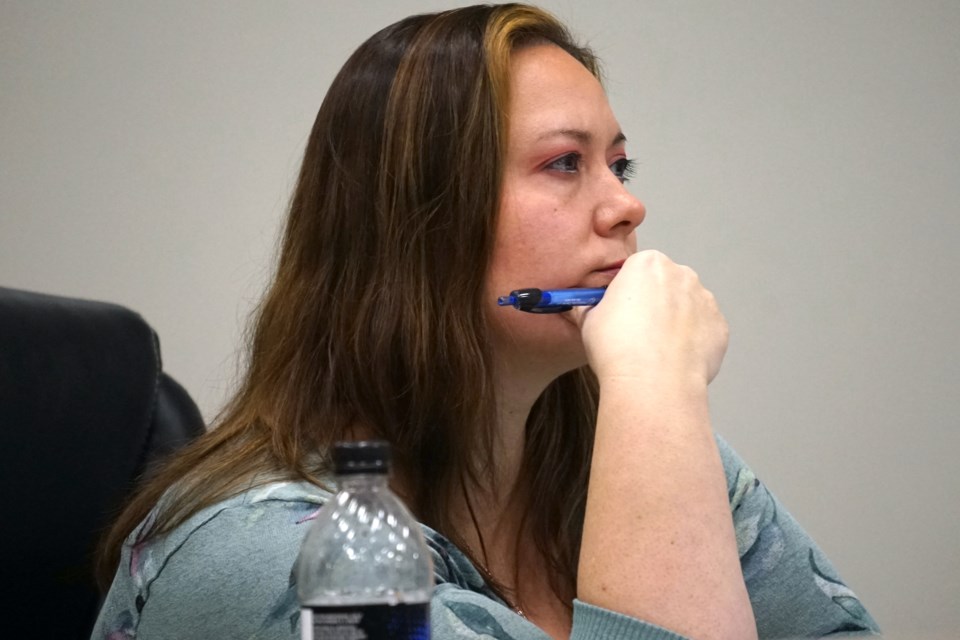ATHABASCA — The start of 2024 marks another year further from the COVID-19 pandemic, but for businesses, the new year brought with it an unavoidable reminder of the economic impact of the global shutdown at the height of the virus.
The federal government’s Regional Relief and Recovery Fund (RRRF) loan forgiveness repayment deadline was slated for Jan. 18 after multiple delays from the initial repayment date of Dec. 31, 2022. And while businesses in the Community Futures Tawatinaw Region are well above provincial averages for repayment, those in other regions like Community Futures Yellowhead East are still struggling to regain ground lost during the pandemic.
According to data presented to Village of Boyle councillors during their Jan. 17 meeting by Coun. Barb Smith, 76.9 per cent of the RRRF loans distributed by the Community Futures Tawatinaw Region office had been repaid ahead of the deadline.
“Sitting at 76.9 per cent while the rest of the province is sitting at 30 per cent, maybe, and huge losses across the province … it’s huge,” said Smith, the village’s acting representative on the Community Futures Tawatinaw Region board. The Tawatinaw Region serves communities in Athabasca County, Sturgeon County, Thorhild County, and a portion of the M.D. of Opportunity.
RRRF loans were distributed through Community Futures offices in collaboration with Prairies Economic Development Canada to provide a source of relief funding for operations that didn’t qualify for the Canada Emergency Business Account (CEBA). Some $2 million in federal funding was made available to small and medium-sized businesses impacted by the pandemic in the form of $40,000 loan. An additional $20,000 was also made available to businesses in late 2020.
Businesses had until Jan. 18 to qualify for RRRF forgiveness. Those companies that borrowed $40,000 were required to pay 75 per cent of the sum in order to have the remaining 25 per cent waived. Organizations that also needed the additional $20,000 had to repay 50 per cent before the deadline in order to see the other 50 per cent forgiven.
RRRF loans were also available to businesses in the Barrhead, Whitecourt, and Fort Assiniboine areas, to name a few, through the Community Futures Yellowhead East office. Michelle Jones, executive director for the organization said in a Jan. 10 interview the need for business support was exacerbated by the pandemic, but it didn't start there.
“Our rural sector was struggling even pre-COVID, with the downturn in the oil and gas industry, then with COVID on top of it, and then unfortunately many of our municipalities within our Yellowhead East region were then also affected by wildfires and flooding,” said Jones. “Those particular small business owners kind of had a triple whammy.”
As of Jan. 10, the Yellowhead East office had received almost $706,000 of the more than $2.5 million lent out. Some 50 RRRF loans had been distributed in the area, and at the time of the interview 21 had been fully paid out, and Jones said eight more businesses had indicated intention to pay before Jan. 18.
“We have a very small percentage that we have not heard back from, and really those ones could be for numerous reasons,” said Jones. “Some small business owners are waiting to see if there’s going to be any other last-minute extensions or could very well just be planning to come in and pay out at the time.”
Smith reported out of 69 loans disseminated via the Tawatinaw Region office, 50 had been repaid in full as of Jan. 16, and an additional three stated intent to repay ahead of the deadline.
“We lent over $2 million, and we’ve recovered over $1.5 million so far back,” said Smith. Updated data for Yellowhead East was not available prior to publication.
Kelly Harris Martin, general manager of Community Futures Tawatinaw Region, said on Jan. 11 that small businesses are still dealing with turbulent economic waters.
“The thing we’ve heard, really from most of our RRRF clients and most of our clients just in general, is the current cost of living that we’re all coping with is obviously impacting small businesses significantly,” said Martin.
“People are cutting back on discretionary spending, it’s hitting some industries quite hard,” she added.
Alternative options
According to data from the Alberta Chambers of Commerce (ACC) website, 30 per cent of respondents to an October 2022 survey said repaying the COVID-era loans would be challenging, and small businesses reported anticipating more difficulties than large organizations. ACC estimated between 25 and 42 per cent of loans wouldn’t be repaid.
Jones said in response to the unique circumstances facing RRRF recipients in the Yellowhead East region, the board decided to allow refinancing options for small businesses in need of federal forgiveness but hadn’t yet bridged the gap.
“It was one way for us to be able to help some of those businesses that perhaps still needed some support and not have to pay the full amount but recognizing at the same time the balancing act there, that it now became a risk to our individual regions lending portfolio,” said Jones.
Similar options were available to businesses in the Tawatinaw Region district, but both Martin and Jones highlighted RRRF clients still had to meet regular loan standards. “They would have to have a completed business plan, they would have to have two years’ worth of financial statements,” said Martin. “We are not reducing our criteria for RRRF applicants.”
For Yellowhead East, the deadline for refinancing applications was Jan. 12. She said the federal government allowed businesses who had applied for refinancing had until March to qualify for forgiveness is the application was approved.
Businesses not eligible for forgiveness or refinancing will be required to make blended monthly payments of principal and interest at a fixed rate of 5 per cent. Those who met refinancing criteria, along with those who repaid prior to the deadline, will make payments on the remaining total not forgiven. Payments will begin in January, and loans must be paid out by Dec. 31, 2026.



